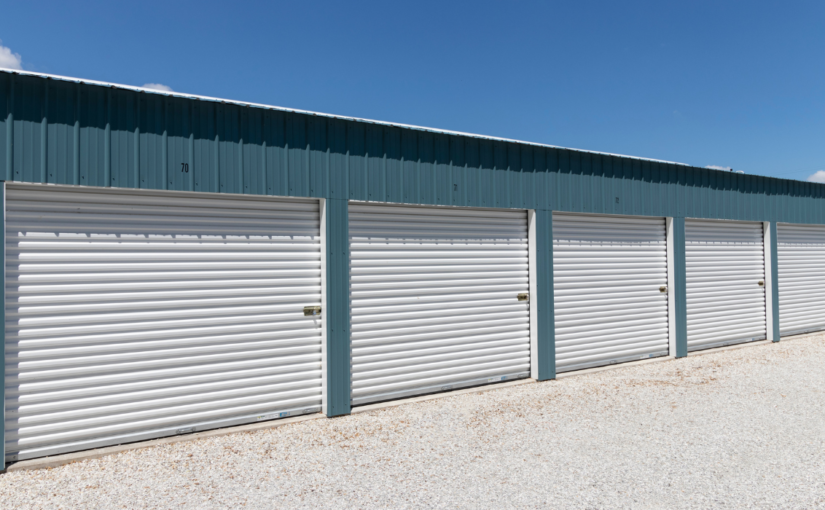back
Understanding the basics of self-storage property financing
03-2023

With good cause, the self-storage market is flourishing. People need more storage space as they accumulate more belongings. Self-storage facilities provide the ideal response to this expanding requirement. Yet, constructing and maintaining a self-storage facility necessitate a considerable financial outlay. Self-storage property financing can help in this situation. The fundamentals of self-storage facility finance, including what it is, how it operates, and the many forms of financing accessible, will be covered in this blog.
What is Self-Storage Property Financing?
The process of obtaining funds for the purchase, development, or renovation of a self-storage property is referred to as self-storage property financing. The funding can be used for a variety of things, such as buying property, constructing new facilities, improving current facilities, or repaying current loans.
How Does Self-Storage Property Financing Work?
Financing for self-storage properties operates similarly to other forms of commercial real estate financing. Traditional bank loans, Small Business Administration (SBA) loans, and private funding are some of the available possibilities.
The most popular method of funding for self-storage properties is conventional bank loans. These loans often have high down payments and tight income and credit restrictions for the borrower. For borrowers with strong credit, bank loans are a desirable alternative because their interest rates are frequently cheaper than those of other forms of financing.
Another choice for funding self-storage real estate is SBA loans. These SBA-backed loans are intended to make it easier for small business owners to find cheap finance. Compared to standard bank loans, SBA loans often have lower down payments and longer repayment schedules.
Self-storage property financing is also possible through private sources. Private lenders can provide more innovative lending options and are frequently more flexible than traditional banks. Private finance, however, frequently has stricter repayment requirements and higher interest rates.
Types of Self-Storage Property Financing
Self-storage property financing comes in a variety of forms, including:
- Bridge Loans
In order to bridge the time between buying a home and finding a long-term financing solution, bridge loans are short-term loans. These loans are frequently used to buy foreclosed homes that need extensive repairs before they can be rented out.
- Construction Loans
The building of new self-storage facilities is financed through construction loans. These loans normally have a brief repayment term, and the borrower is required to submit thorough building estimates and blueprints.
- Permanent Loans
Long-term loans known as permanent loans are used to purchase or refinance self-storage facilities that already exist. These loans often come with a significant down payment and are provided by banks and other conventional lenders.
- Joint Venture Partnerships
Borrower and lender collaborations are referred to as joint ventures. While the borrower supplies the necessary knowledge and experience to operate the property, the lender finances the undertaking. These alliances are often employed for bigger projects requiring substantial financial investments.
- Mezzanine Financing
Combining debt with equity financing is a type of financing known as mezzanine financing. The equity that the borrower owns in the property serves as security for the lender’s loan. This kind of funding is often utilized for substantial capital-intensive large-scale projects.
Building and operating a profitable self-storage business require self-storage property finance. There are numerous financing options, each with unique benefits and drawbacks. It’s crucial to take into account variables like the project’s size, the borrower’s credit and income history, and the duration of the repayment period when evaluating financing possibilities. Self-storage unit owners can establish and expand prosperous enterprises to fulfill the rising demand for these facilities with the suitable financing option.
Furthermore, it’s critical to understand that there is no one-size-fits-all approach to financing self-storage real estate. Every project is distinct, and the financing option should be customized to the borrower’s particular requirements. Borrowers may navigate the complex world of self-storage unit finance and find the financing option that best suits their needs by working with knowledgeable and experienced lenders. Self-storage property owners can create and expand profitable companies that offer consumers useful storage solutions while creating long-term financial returns with careful planning and strategic financing.
F2H Capital Group is a debt advisory firm specializing in negotiating the best terms for your commercial real estate projects. The company offers a range of financial products and services, including fixed loans, bridge loans, and construction loans across all asset types. Please contact us for any of your financing needs.

